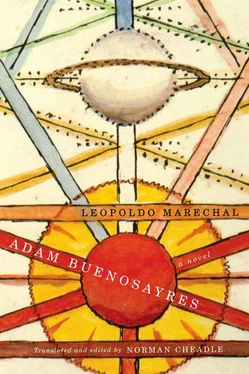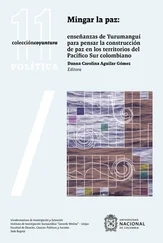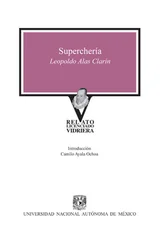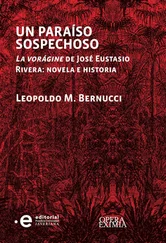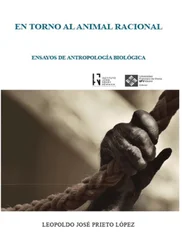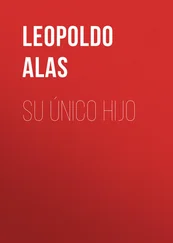”It was a marvellous road to perdition! It was a mortal leap of pride, in three somersaults which I will now briefly describe:
” First somersault : Immersing myself in the texts of orthodox theologians, I go back to the infantile notion of a Divinity who regards us tenderly. I weep with love over the delectable old pages. I fall into an unctuous piety that makes me laugh at my former self-flagellation and leads me now into subtle ways of temptation. Yesterday, as I passed through the children’s room, I caressed the dear little head of a child cutting out figures; today I looked at the jugs of the woman security guard with the merest hint of indulgence. Careful, Don Ecuménico! Watch out for the big lie!
” Second somersault : I’m now devouring the big series of books in folio format. Strange conceptions about the Divinity. What’s this? God is no longer absolutely impassive, but rather the Being obliged to exteriorize his possibilities of manifestation! And I, Ecuménico, am one of those possibilities! Bravo, Ecuménico! That’s putting it to the old boy Up There! Give’m the old one-two! I go striding around Room Number Three. Then I stand in front of the skylight and let fly with a metaphysical speech that rattles its glass panes. The Librarian from hell unexpectedly comes in, glances around, and goes away. He hasn’t noticed anything, or pretends not to notice!
” Third somersault : a ravenous hunger has me exploring the moth-eaten tomes shelved in the stacks at the back. I laboriously reconstruct lines of prose riddled with holes. And my mind is dazzled, it staggers, it lurches into unfathomable abysses. Great God, what has your vast divinity been reduced to! They used to say you were Being, beyond which nothing existed. And now it turns out there is a Non-Being anterior to you, a Non-Being fabulously rich in metaphysics, a Non-Being of which you are only an affirmation! How brainy those damned Orientals are! Laugh, Ecuménico! And, sitting on the friar’s chair, I laugh my head off, long and loud, till I’m weeping and sniffling with laughter. What a victory, Ecuménico! A lowly insurance broker! And again the Librarian comes in, examines the room, and turns back. He’s heard nothing, or pretends he’s heard nothing.
Here the infernal bug paused, panting. Madness flamed and sparked in his faceted eyes; his spiral-proboscis, completely out of control, alternately slackened and wound itself back up; his thorax was thudding erratically, and a slimy sweat oozed from the fat rings of his abdomen. Then he began to speak in an insufferably shrill, pedantic voice:
— Silence, everyone! Here begins the Book of Don Ecuménico’s Transformations. A hurrah for Being, and two more for Non-Being! Hip-hip-hurrah! Would anyone care for a cup of ambrosia bottled and zealously sealed by the Eternal?
He paused again, as if disoriented. Clearly, Don Ecuménico was raving and he knew it. With an effort of human will, he restored order to his agitated insectoid physique. Then he spoke thus:
— We come now, gentlemen, to the hardest part of my story. It’s no big deal to recount the metamorphosis of a soul, but to describe a body’s transformation is a monstrous task, and thankless to boot, for the narrator must deviate from the usual laws that govern the famous human biped and thus risk foundering on the reefs of his listeners’ incredulity.
”I’d be lying if I claimed to know at just what point my metamorphosis began, though I sometimes wonder if the transformation both in body and soul didn’t start at the same time and develop in tandem. My first clue that something was out of the ordinary was in the behaviour of the Librarian, about whose true identity — man or demon — I was beginning to have my doubts. He’d been in the habit of suddenly showing up in Room Number Three, slipping in stealthily with some excuse that poorly concealed his intent to spy on me; we would sneak oblique glances at one another, then he’d leave shrouded in his eternal air of indifference. But later I noticed that my man, upon entering, would stand there looking perplexed, his eyes searching the entire room until they located me. And yet, there I was, right in front of his nose, sitting as always in the same chair under the skylight! What was wrong with him? Was he going blind? Things came to such a pass that one morning, facing the Librarian, I had to shout to get him to notice my presence. I immediately questioned him about his eyesight — and I’ll never forget the needling irony in his voice when he assured me that it was excellent! I got worried. If there was nothing wrong with the man’s vision, it was logical to suppose that the cause of his optical aberrations wasn’t in him but in me. At once, a clear suspicion, an unutterable fear invaded me. I used to carry around this little mirror for the purpose of inspecting my teeth; well, I spent the better part of the morning fending off the temptation to look at my face in the mirror. Finally, half frightened, half curious, I overcame my qualms and took a look. At first, I couldn’t see my face at all. Straining my sight, I eventually picked out my eyes, nose, mouth, and hair, but they were faded and ghost-like. Then I observed my bottle-green suit, my blue overcoat, my chestnut shoes, and realized they too had lost their factory-made colours and had taken on the unique, indefinable, dead tone characteristic of all things in Room Number Three. No doubt about it! It was a case of mimetic adaptation, comparable to the way certain varmints adopt the ambient colour of the foliage, stones, or stagnant water of their habitat.
”Far from alarming me, the phenomenon redoubled my sense of security and so my confidence. By this point I was spending the whole day in Room Number Three, minus a fifteen-minute break to go out for a glass of milk with vanilla biscuits. My life had organized itself into two isochronic phases: one of metaphysical voracity, which inevitably declined into another of profound lethargy. The truth is, at first, under cover of my recently discovered invisibility, I had fun startling the Librarian, sneaking up on him and blowing a raspberry right in his ear. But finally that little game got boring, and I ended up giving myself over entirely to reading and sleeping. When night fell, I went home to the rooming house, my last link to the realm of men. But one day that link broke, too. It happened like this:
”After one of my spells of post-reading lethargy, I woke up as usual in Room Number Three, curled up in the leather armchair in the light of the green lamp. I stood up, went over to the skylight, and was surprised to discover that outside it was as dark and still as midnight. I opened the famous little door, went into the second room and then on to the children’s room: I roamed through the entire mansion. All was dark and empty, the doors locked, the balconies bolted. No doubt about it: the Librarian, at closing time, hadn’t found me in Room Number Three and, assuming I’d left, had inadvertently shut me up in the big deserted house. Midnight! Alone! The whole mansion was mine! You can’t imagine the dark rapture that came over me at this realization, the intellectual orgy to which I then abandoned myself throughout that night of nights. What legendary proportions, what mythological hues graced the poor little insurance broker called Don Ecuménico!
”From then on, I didn’t go back to my rooming house. I don’t know whether my definitive eclipse alarmed Doña Consuelo, whether she reported it to the police, or whether they looked for me in morgues and hospitals. Henceforth, day and night, Room Number Three was my only residence, the place of my banquets and fits of lassitude. I still went out for fifteen minutes a day to the dairy bar. But later I managed to do without those outings by stocking the pockets of my blue overcoat with enough chocolate, biscuits, and caramels to last me two weeks. Whether negligently or wisely, the Librarian almost never looked in on the room. Moreover, a hard winter had arrived and not many readers were coming to the library. Settled deep in my armchair, I listened to the pitter-patter of the rain on the panes of the skylight. My periods of being awake were growing shorter, my lethargies longer and deeper.
Читать дальше
